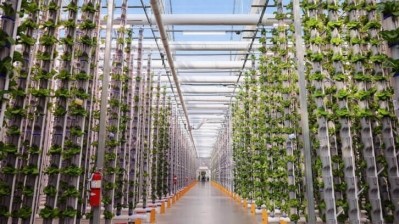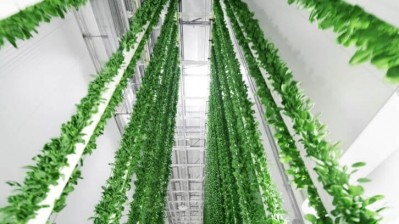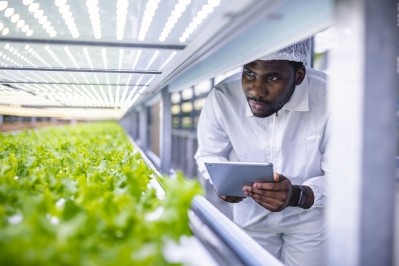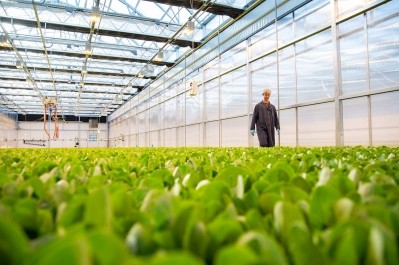FDA calls for greater food safety guidance for indoor farming companies, how is the industry responding?
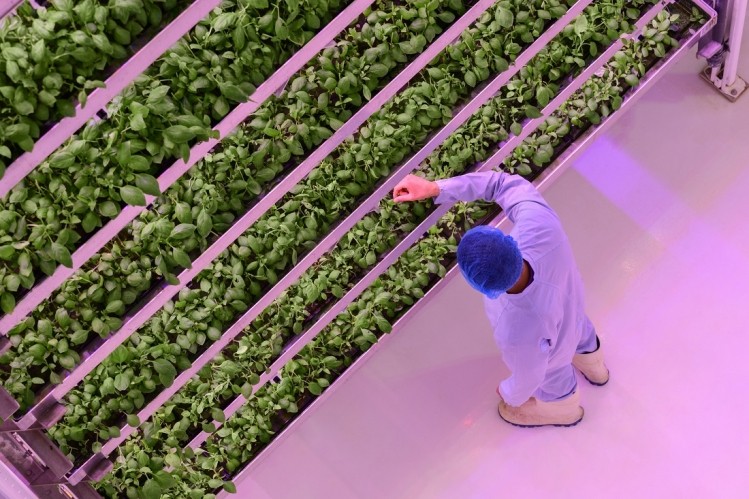
The FDA's investigation traced the outbreak of Salmonella during the summer of 2021 back to a specific indoor growing facility in the Midwest operated by indoor farming company BrightFarms, which was using growing pond techniques with deep water culture and floating raft production methods. According to the investigation summary released last week, a sample collected from an outdoor storm water drainage pond adjacent to the facility was contaminated with Salmonella Typhimurium -- a genetic match to the outbreak strain.
"Although a conclusive root cause was not identified, the agency identified certain conditions and practices that could result in contamination, including the presence of a different serotype of Salmonella in pond water used to grow the leafy greens, growth media storage practices, water management practices, and general sanitation practices at the CEA that were inadequate to prevent the introduction or spread of microorganisms of public health significance into the leafy greens," stated the FDA.
The investigation and its findings prompted the agency to publish a broader CEA industry-specific guidance, which includes safety measures such as better oversight of potential sources and routes of contamination; implementing rapid cooling techniques for the cold-holding of harvested leafy greens to prevent pathogen growth; and assess and mitigate risks associated with adjacent and nearby land uses that may impact CEA operations, in both rural and more urbanized settings. READ THE FULL LIST OF RECOMMENDATIONS HERE.
"These requirements and recommendations are just some examples that serve as a reminder that as the use of CEA is increasing globally, all types of food production must continue to address basic food safety concerns, including potential sources and routes of contamination," said the FDA.
But how will this impact consumer trust in CEA produce, which the industry has always touted as safe because they aren't exposed to many of the same elements as in conventional open-field farming and also change through fewer hands to get to store shelves?
In an emailed statement to FoodNavigator-USA, Matt Lingard, PhD, vice president of agriculture and science at BrightFarms said:
"The health and safety of consumers is our number one priority at BrightFarms. Although a root cause was not identified, the suggestions made by the FDA for the CEA industry are being incorporated into our continuous improvement program. We work with some of the best minds in the industry and academia to push food safety forward. Now that the FDA investigation is complete, we will be sharing any learnings with the members of the CEA Food Safety Coalition. We are confident in the safety of our products and our farms."
Greater transparency needed
While the CEA and indoor farming industry is not immune to risk of contamination, it still does hold advantages over conventional open-field farming, commented Gotham Greens, a hydroponic indoor farming company with greenhouses located coast-to-coast growing an assortment of leafy greens. While Gotham Greens was not part of the FDA investigation, the company did share its perspective on the importance of ongoing transparency in the CEA industry to avoid future food safety risks.
First, the company pointed out that while grouped in the same industry, indoor growing methods and techniques vary from company to company. In the case of Gotham Greens, the company uses a nutrient film technique (NFT system) in which water and nutrients are delivered to suspended growing channels using drip irrigation.
"Through our water monitoring program, we work to ensure that the water used to nourish our plants is free of harmful pathogens and our supplier approval and GMP practices ensure all our inputs are safe and clean," noted Gotham Greens.
Still, greater oversight and guidance from an agency like the FDA is a necessary step in an industry growing as rapidly as the CEA space, which Lux Research estimates will be worth $100bn globally by 2030.
"In the bigger picture, the rise in foodborne illness linked to large West Coast conventional farming operations has underscored the need for greater traceability and transparency in the supply chain and has raised the profile for CEA and greenhouse-grown produce and its consistent growing methods. The greenhouse vegetable industry has an inherent advantage in terms of food safety compared to conventional open-field farming," said Gotham Greens in a statement.
"While no food manufacturing or CEA operation is immune to a food safety incident, it is incumbent on every CEA operation to implement and maintain the highest levels of food safety and quality assurance to ensure all products are safe to consume."
